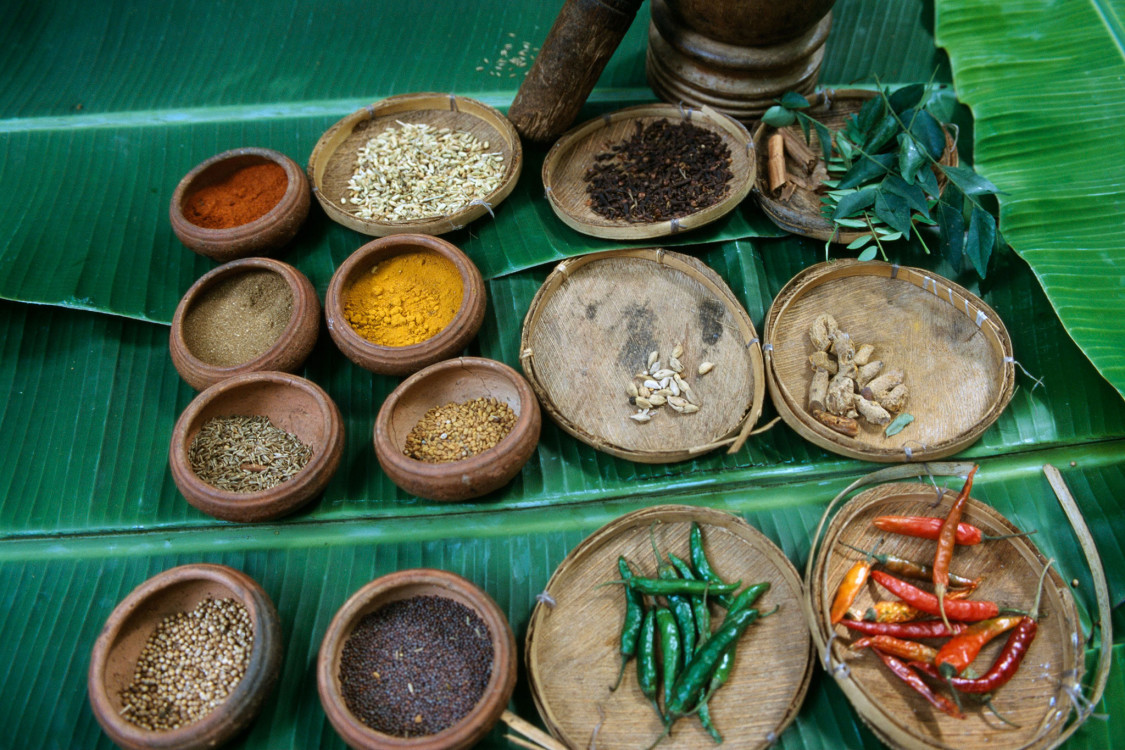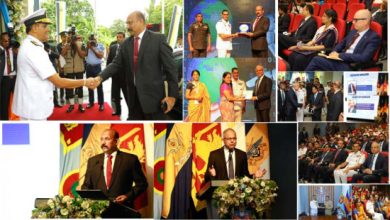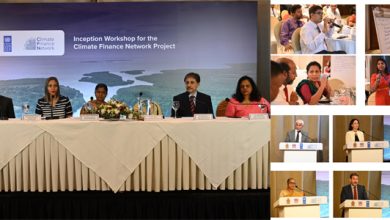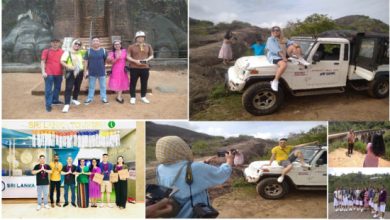Sri Lanka’s unique opportunities in wellness tourism
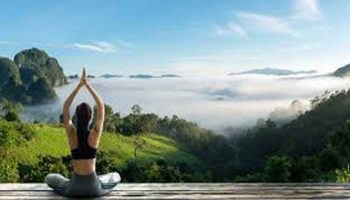
By Dr. Franz Linser
Visiting Sri Lanka earlier this year, I was confronted with many substantial efforts currently undertaken by the Export Development Board (EDB) and the Marketing Development Facility (MDF) as well as by outstanding entrepreneurs to further develop the current health and wellness touristic sector. All seem to share an extraordinary common passion, determination and motivation to seize the moment and grasp the opportunities (as seen in the growing global wellness tourism markets) and raise the Sri Lankan Wellness offerings to a whole new level. I was privileged to receive manifold impressions, experiences and pieces of knowledge during my personal stay in Sri Lanka.
When talking to stakeholders, entrepreneurs, doctors, therapists but also Ayurveda guests from different countries, I detected lots of valuable potentials in Sri Lanka waiting to be developed. When being guided through a many well-established Wellness Hotels and Ayurveda Resorts throughout the country, I also detected many “low-hanging fruits” for quick improvements which are waiting to be picked.
Surprisingly, the picture that was drawn by many of the tourism stakeholders was a picture of a relatively fixed situation in Sri Lankan health tourism. There seem to be only two different (and separated) sectors within the current touristic segment, that is traditional Ayurveda (plus indigenous medicine) on the one hand and medical tourism (based on western medical approaches) on the other. Interestingly enough, additional potentials have rarely been named.
Sri Lanka’s Excellent Pre-Conditions
No matter how exactly “wellness” will be interpreted in a future Sri Lankan tourism concept, it is very likely that the chances for Sri Lanka to be backing the right horse are extraordinarily high. The global growth rates for wellness tourism are about twice as high as for the tourism industry in general. The wellness industry today includes not only the wellness tourism sector with its 10+ percent annual growth, it also includes other powerful industries like fitness, mind-body medicine, preventative medicine, healthy eating, weight loss, beauty or anti-ageing.
Historically speaking, wellness has always been a holistic, proactive and positive approach to one’s personal health and has been defined by its developers in the US in the 1960’s as a conscious positive and healthy way of living or as a positive lifestyle change towards a better, fulfilled and happy life.
From an international consumer point of view, substantial changes in our societies are leading to unhealthy lifestyles in all major elements of human existence: physically, mentally, socially and spiritually. Thus it is not surprising that the umbrella term “wellness” today is described as an omnipresent desire in people’s minds. Tendency strongly increasing. If the notion of wellness with all its important subcategories from balancing lives, healthy diets, moving your body, positive thinking, meditating, relaxing and pampering didn’t not exist today, it would have to be invented on the spot. Never have people in the industrialized world been more in need of health and well-being than they are today.
Sri Lankan strengths and weaknesses in wellness tourism
When it comes to developing internationally outstanding wellness offers, Sri Lanka has a number of valuable assets to build its future success on: these are (among many others)
- the island’s very special location, being well accessible from east and west,
- its tropical climate which makes it a sought-after destination from the northern hemisphere,
- its outstanding natural beauty, pristine national parks, beaches, mountains, …
- its rich historical grounds
- its unique tea culture and history
- its direct international flight connections from major source markets
- its international reputation in Ayurveda and holistic medicine
- its renowned offerings in western medical services
- its dedication on governmental level to develop a wellness sector nationwide
- its numerous private stakeholders, who are ambitious and internationally successful
On the other hand, a number of current weaknesses have to be considered as well.
- Poor statistical data about Ayurveda and the whole health sector
- Lacking reputation of health tourism sector in the local communities
- Insufficient number of tourism schools
- Lacking of mandatory standards for health tourism and hospitality
- Insufficient number of officially certified Ayurveda resorts
- Improvable language skills to serve international clientele
- Lacking awareness of international benchmarks and competitors
Official Sri Lanka recognizes the enormous potential
Sri Lankan Government and its public bodies have decided to professionally build up the wellness sector and are willing to take concrete action. Having realized the propitious moment in the international wellness tourism markets Sri Lankan officials seem to be determined to develop and market the whole country as an internationally renowned “wellness destination”.
The evolution of customers’ needs
Our working and living habits have changed dramatically. Thus, the reasons for feeling unwell and for getting sick have changed. It seems logical that our health strategies will have to change as well. According to the World Health Organization health today is rather determined by factors like a healthy relation to our selves and our surroundings, healthy social contacts and meaningful work than exclusively by workouts and healthy nutrition.
With the ongoing changes in our society, customers are substantially redefining health and wellbeing. Health today is considered more than the absence of diseases. It is more than the physiological normality in terms of weight, blood pressure and cholesterol. It is about the acceptance of the rules of nature. It is about the deeper understanding of the interference of body and spirit. It is about strategies to balance emotions, work and leisure, social interactions and personal desires. Health today is about life as a whole. And he who can’t manage life, can’t manage health.
Therefore in the Wellness centers of the future it won’t be enough to provide customers with treatments and know-how. It will be crucial to deliver strategies for the actual do-how. Only he who has developed a concept for life in general, will sustainably decide to live in a healthy way. Wellness entrepreneurs of the upcoming decade will have to be aware that modern health management is lifestyle management. Thus, successful future wellness resorts will be places that accompany people along their passionate and emotional way to their individual selves.
If it is true that markets always react to the real desires of the customers, it is to be expected that in addition to medical doctors it will be the psychologists, monks, sociologists and motivational coaches to join the spa and wellness teams of the future. They won’t be dressed in white nor will they be curing sick people. However, they will be there, ready to talk and help and they will be an integrative part of unique future lifestyle programs. They will be the coaches and partners of the next generation customers’ lives.
What needs to be done in Sri Lanka?
Following the above said, it will be crucial for the success the future wellness destination to put the focus on the development of relevant wellness products for the evolving new wellness customers. There are currently well-established products on the Sri Lankan wellness market, that is traditional Ayurveda on the one hand, and western based medical tourism on the other. But the portfolio of wellness offerings in the international wellness markets is wider and more diverse. Sri Lanka has a lot more potentials for successful wellness offerings than it is offering right now.
However, it is important to know that Sri Lanka has almost ideal pre-conditions for the development of a major wellness destination: it has a pleasant tropical climate, a one-of-its-kind landscape, wildlife, beauty, accessibility and, most importantly, it can rely on a proud history and international reputation of holistic healing. All of this serves as a most fertile ground for the creation of a sought-after international wellness destination.
Future wellness customers from Europe or Asia tend to be younger, urban, stressed, often overworked and in the rush-hour of their lives. They are in need of wellness retreats and health vacations and are willing to immerse themselves in order to re-balance their lives and re-energize their bodies and mindsets. Ayurveda will certainly be an excellent solution for many, however not for all. In addition to the existing ayurvedic clientele Sri Lanka could also serve guests who ask for modern, stylish, evidence-based wellness and health offers (maybe in combination with the strong western based medical sector on the island). Sri Lanka could design respective offers for these additional guests and offer a wide variety of world-class wellness programs to the current health tourists as well as the upcoming international clientele.
Dr. Franz Linser
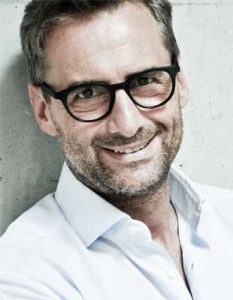
With more than twenty years of experience in the luxury wellness and spa industry, Franz today is a sought- after expert developing innovative state-of-the-art health and wellness projects. Prior to his consulting business, Franz was studying sports sciences as well as English and American literature in Innsbruck, Austria, and Los Angeles, USA. He then accepted several lectureships in the field of sport science, such as for the Academic Sport Institute, for the Austrian Trainer Academy and a seven years engagement as lecturer at the Institute of Sport Sciences at Innsbruck University. In addition Franz received an Austrian Federal Trainer Diploma with distinction.
At the age of 28 he became trainer of the renowned Austrian national ski team – overseeing all training programs for these world-class athletes, some of which becoming world champions and 1992 Olympic medalists. Back at university, Franz developed a new training system for high-profile athletes and rehabilitation patients (Austrian Patent 1993) and wrote his doctoral dissertation in the field of sport sciences with distinction. His thesis was published the year after.
In 1993 Franz set up his first own business, a consulting company developing health concepts for the upper level hotel industry as well as health seminars for a demanding luxury hotel clientele. When founding Linser & Partners in 2006, numerous international projects in health and wellness tourism followed. Franz also brought his vast experience in health and tourism into politics: from 1996-99 he engaged himself as Member of the European Parliament and thereafter in the regional Tyrolean legislative. Furthermore, Franz established Austria’s largest Wellness Cluster (“Wellness Tirol” with 100+ companies today).
Today Franz is owner and Managing Director of Linser Hospitality GmbH, an international consulting firm based in Innsbruck, Austria. The portfolio of services includes the overall strategy development of wellness hotels and resorts, such as status, potential, trend and financial analyses, the development of health services and products, functional room planning, architectural master planning, development of marketing strategies, staff training and quality management. He is a very passionate strategist, mastermind and engineer in pioneering modern day and innovative hotel concepts.
In 2013 Franz co-founded an International Hotel Management company, the first of its kind to exclusively manage high-end medical resorts. In 2014 Franz was appointed to the Board of Directors of the Global Wellness Summit.
In 2016 he organized and co-hosted the 10th Global Wellness Summit in Kitzbühel, Austria, the biggest summit so far, with 500 delegates from over 45 countries.
Franz has been sharing his wellness experience as a juror for several industry awards, such as the World Travel Awards, the World Spa Awards and the European Health and Spa Awards, and is today a sought-after speaker at major spa and wellness congresses worldwide. His passion and innovative visions are widely appreciated in the industry. Spoken languages are German, English and Italian.


